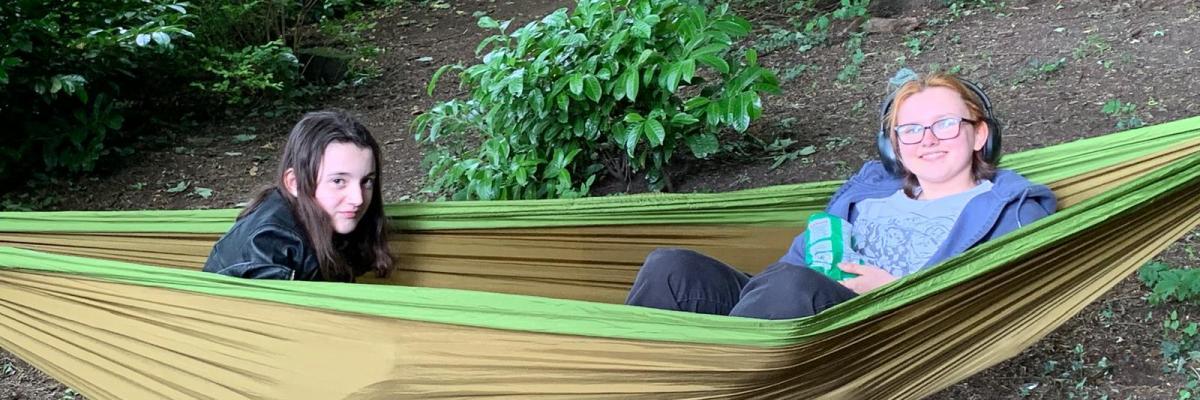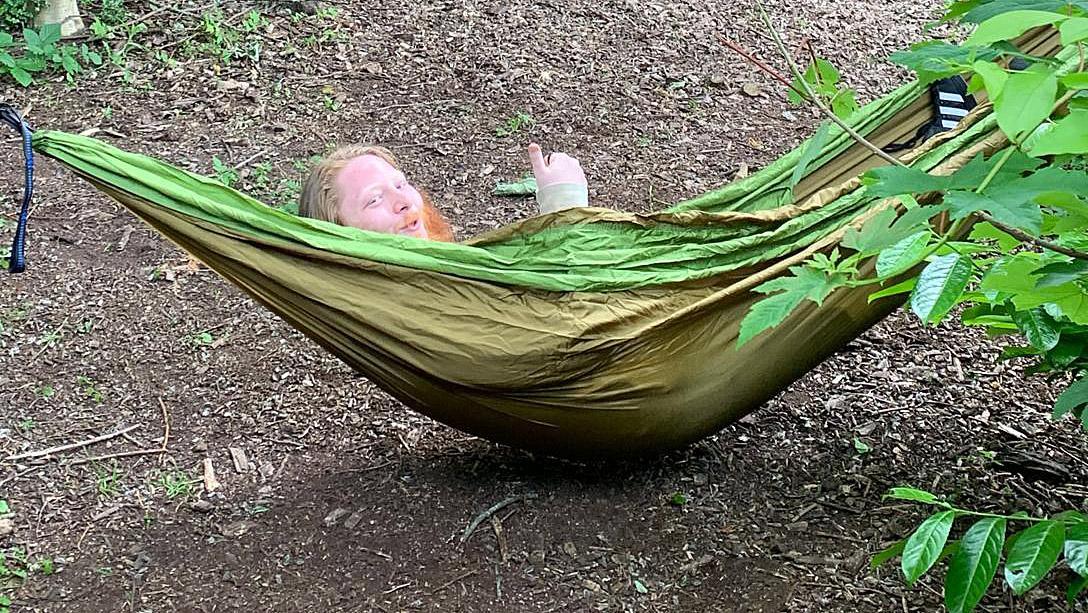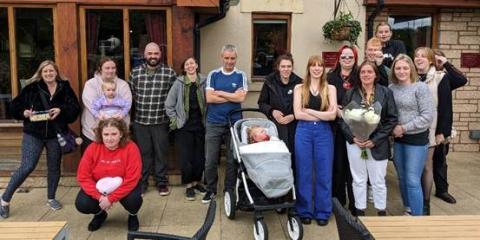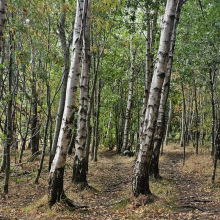Introduction
How can we mainstream the involvement of people with lived experience in social work and social care - to drive improvement, generate positive change, and do it all in a meaningful and effective way?
In 2018, Iriss wrote about the East Lothian Champs initiative that I always thought provided a fantastic model for this. It showed the multi-dimensional ways in which care experienced young people can be involved in championing their rights, and supporting change.
- Informing strategic planning and improvement
- Providing education and training to others; campaigning for change
- Whilst also providing peer support to one another
- Being provided with opportunities to develop their skills and grow their confidence in support of life chances.
I wanted to return to this to see how it had developed and changed. (Not something that we always make time for.) I also wanted to understand the critical ingredients that made this model work; and more generally how we ensure that what we do isn’t tokenistic or exploitative and can be sustained.
And, of course this is all particularly prescient following The Promise and the incorporation of the United Nations Convention on the Rights of the Child into Scots Law, in Jan 2024. The model created by East Lothian Champs, rightly challenges our traditional societal norms that discriminate in favour of adult voices and views. ‘ Adultism ’ can be paternalistic at best, but represents an abuse of power at worst and the silencing of voices. It can also be internalised by young people, leading them to doubt their own experiences or self-worth, preventing them from speaking up or out, or in believing that they can make a difference.
The following story celebrates all that is good about the East Lothian Champs Board, highlighting key ingredients needed to make it work, as well as what has developed and changed since the original 2018 Iriss case study. It is offered as a model that others can learn from, adopt or adapt for themselves. It has been informed by a conversation I had recently with Lisa Shine (Quality Assurance Manager, Children’s Services) from East Lothian Council, Sophie Morris (Advocacy and Participation Worker) and Keith Ward (Development Officer) from Who Cares? Scotland. A big thank you to them for giving their time.
What’s stayed the same?
I’m really pleased to report that in 2024 East Lothian Champs are in excellent health and going strong. But before I launch into how it has changed and developed, let me highlight core elements that have ‘stayed the same.’
Support for one another
Support for one another is key for the care experienced young people. This is afforded through regular get togethers in their own space. They meet two hours every week to share their views and experiences in a safe, relaxed space - currently provided free of charge by Queen Margaret University as part of its partner contribution. (This all, usefully helps keep costs down.) Food is also provided and travel costs covered, along with encouragement to come along and join in so everyone feels welcome.
Together these young people make up the East Lothian Champions Board, with coordination, support and advocacy for the group provided by the advocacy and development workers employed by Who Cares? Scotland that is important to making this work.
Their ‘own space’ provides many things: peer support, friendship, connection and belonging; it can also support recovery or help them develop their own identity; increase self - confidence and skills. Lisa likens it to ‘therapy that isn’t therapy’ highlighting the value in being alongside people with similar but different experiences, and of ‘finding a way of coming to terms with their care identity, (or thinking about) if they want to have a care identity.’
The group have also identified priority areas for care experienced young people in East Lothian: Housing, Education, relationships with the Police, Finances, Aftercare, Health and Family/keeping loved ones together which segues nicely into….
Influencing positive change
The Champions are also about having a strong collective voice, and helping create a better future for themselves, and others coming behind them in the care system.
Champs have been able to inform strategic planning in East Lothian. As part of the model, individuals from the Champs Board are paired with an Ambassador. An Ambassador is someone with power or influence in key priority areas, able to help bring in the types of changes to policies or services that Champs want to see. The Ambassadors and Champs meet quarterly via East Lothian’s Children’s Strategic Partnership, and have got to know one another and build a relationship.
This model has led to various improvements and initiatives informed by the Champs, of which I can only give you a flavour here…
- Making East children’s hearings more inclusive and feeding into the design and refurbishment of the Children’s Hearing Centre in Tranent
- Supporting new foster carers, and running a recruitment campaign to recruit for those able to take on larger sibling groups so siblings can stay together
- Developing more positive relationships with the police, informing their corporate parenting plan and what to do, for example, when care experienced young people go missing
- The involvement of Champs in recruitment of key staff in the council
Champs have also worked to educate others. For example, they have created videos and workshops about what it’s like to be a care experienced young person in school – highlighting to teachers and support staff what can be done better and how the principle of corporate parenting extends to schools. This led to a subsequent invite to come and speak to pupils. The group have also run events at their local University, Queen Margaret University College in Musselburgh, and been part of an exchange trip to Belfast to talk about the Champs model and why it matters.
Modelling hope and providing new opportunities
What’s stayed the same, is that the East Lothian Champions continue to model hope. The younger care experienced champions take inspiration from the older ones. ‘It gives them a sense of hope for their future, for their pathway.’ Some of the Champs also go on to take up paid jobs as participation workers with the initiative. Having paid participation officers is important for a number of reasons.
- Having paid participation officers ‘strengthens the platform for collective advocacy, because you trust our paid staff to represent the voices of the collective group.’ That the participation officers are employed by Who Cares? Scotland rather than the council also helps them feel more independent
- These posts provide young people with new skills and confidence, opening up other opportunities. In practice, they have found a stepped and flexible approach works– with young people beginning with part-term hours, leading to longer hours and a full-term contract
- Lisa sees this as central to what the Champs Board is about - modelling good corporate parenting, that other organisations could emulate too. It’s about encouraging them all the way and helping plug some of the gaps a care experienced background can create, including a disrupted education. These opportunities have served as a stepping stone to a job or college or university, or getting a driving licence. It’s clear she, and other staff, take great pride in the young people’s achievements
What’s changed?
Changes to funding
From my own involvement with service user and carer involvement over the years, I know we need to challenge unspoken assumptions that this can be achieved without due care or investment. And by investment, I do mean money. You need a budget for this.
One big difference between 2018 when the original case study was written and now relates to funding. When we met the East Lothian Champs in 2018 they had five-year funding from Life Changes Trust, a charity set up in 2013 with a £50 million endowment from the Big Lottery ‘to transform the lives of young people with care experience and people affected by dementia.’ The charity wound up in 2022, with East Lothian Council, the Health Board and Queen Margaret University showing commitment to the venture by providing a further three years funding, with a review point at this stage. Lisa sees this as a ‘is a real testament to the support from partners to the Champs Board’.
Expanding our Ambassadors
In terms of the Ambassadors paired with a young Champ, Keith explains that they have undertaken a bit of a review of who they are. There are still key Ambassadors who are Heads of Service for specific business areas, however they have expanded on this to include people who may not be Heads of Service but have the means within their day-to-day roles to support the changes that the Champs want to see implemented. ‘We have found that having a ‘blend’ of people who are in positions of power coupled with others who have the means to influence change in their day-to-day roles is the most effective way to both influence change and have our Champs voices heard. In short, the more people involved in directly helping to push forward the priorities of the Champs, the merrier!’
Membership, renewal and widening participation
Champs Board membership includes people in the 20s and even 30s, with no sharp cut off or expulsion when people turn 21 or 26. ‘There’s value in everybody’s voice if they are care experienced and ‘we are keen to honour that’ says Sophie. She highlights the commitment of people ‘who volunteer every week without fail … dedicated to making change for younger people, possibly going through similar situations to ones they have experienced.’
Many champs are clearly keen to stay involved over the long-run, with this testament to the value of being part of it. However, it is recognised that the group has become older and they need to broaden membership. This will include setting up a group for the younger demographic, says Keith. They will have had different experiences of care than current champs. It is also explained that COVID meant they lost younger members in the 12-14 year age bracket when they stopped having face-to-face meetings during lockdown. While the feeling is that face-to-face is always better, it’s seen as especially critical for this younger age group.
And it’s important to remember that groups just don’t maintain themselves but require attention, care and renewal. Plus, we all need to keep challenging ourselves and ask if there are any voices missing? Like any ‘interest group’ we are the same, but different. I ask if all the Champs Boards across Scotland are the same? They’re not, and quite different I’m told. That said, there is opportunity for them all to meet up online, with connections re-started and reinvigorated after the dampening effect of COVID.
Reframing priorities and shifting the narrative
Language is something that the groups have always talked about at meetings, explains Sophie, and always will. ‘It plays into your sense of identity and live issues in the care system.’ It’s all shifting.
‘As an advocate, I know that language used, especially in formal processes such as hearings and looked after reviews directly impacts on the child’s ability to engage and contribute to discussions about their life and their future…compared to 10 years ago I can really see that adults are more conscious about using child friendly terminology, dropping acronyms … (using) language to ensure all children feel valued. Champs and the care experienced voice has really driven forward this hugely positive change.’
At the moment they have a big focus on reframing their priorities and how this is expressed, says Keith. This will filter through to their asks of decision-makers and helps Champs think about their values as a group and as individuals. It’s part of a bigger shift to using more positive and right-based language, away from terms that stigmatise. It’s described as a time-consuming but valuable piece of work, with the regular weekly group meet ups plus dedicated time at a residential event supported by Columba 1400 given over to it.
Each and Every Child have also played a part. They designed and trialled a training session with young people in East Lothian, with a view to extending what they do for professionals to care experienced young people. Sophie explains how this was quite challenging: ‘using ‘old language’ to highlight the changes needed was quite triggering.’ But there was important learning from this, with the session redesigned with the help of the champs. The redelivered session went really well! Of course, this connects with another shift in the narrative, and what it means to be trauma-informed.
It’s also explained that the Champs can be an obvious go-to platform for people wanting to engage, that care needs to be taken to ensure that people are not taken advantage of or exploited – emotionally, or for un-productive ends. As a group, they can screen out what they can and can’t do and, together, decide what to say ‘yes’ or ‘no’ to. This is yet another strength of partnership model and collective approach, and what sustained funding provides them.
To end
I just want to end with Lisa’s words that were left ringing in my ears:
‘If there was no Champs you’d have very little to hold onto in terms of any collective voice of children that are care experienced in East Lothian. We would be starting all over again.’
Clearly, we want to avoid ‘starting all over again’ and build on and learn from inspiring initiatives like this. That said, it remains a challenge to us all, to make visible the critical factors that make this work – from strategic commitment, funding and infrastructure, to group and collective approaches that nurture, protect and empower, as well as the tiny relational acts that make a real difference to people’s lives and have a bearing on their future trajectory. At the heart of all of this, lies belief in care experienced young people, investing in them and their future, and working together to help make tomorrow better than today.







